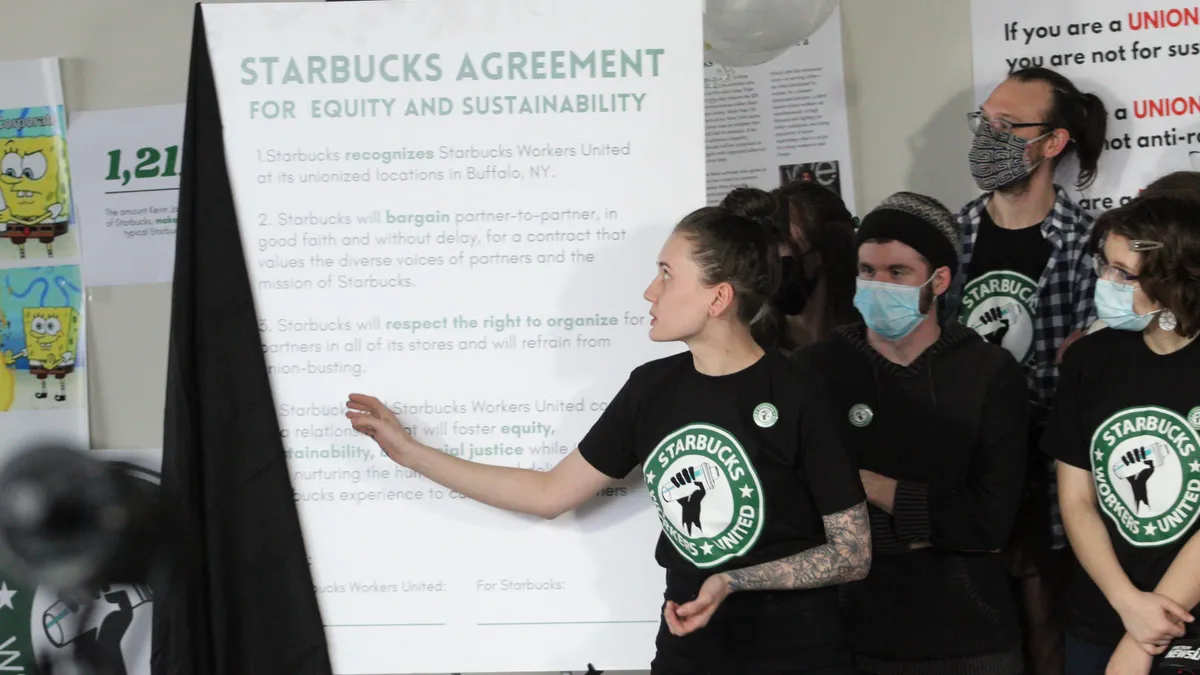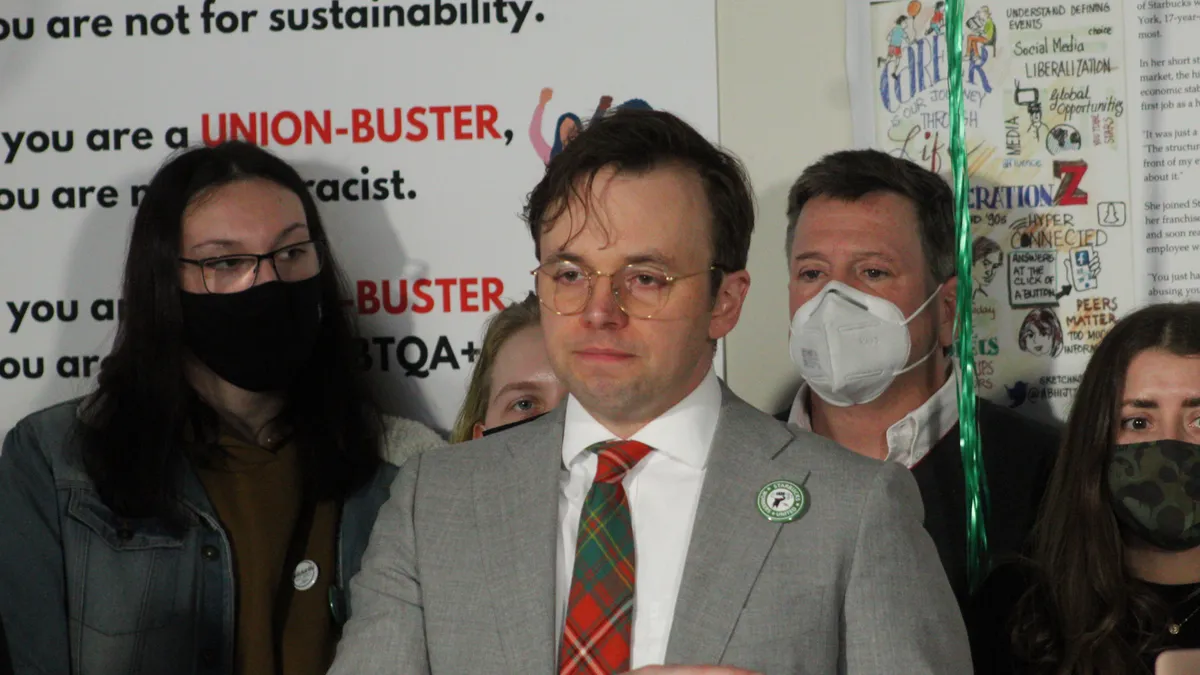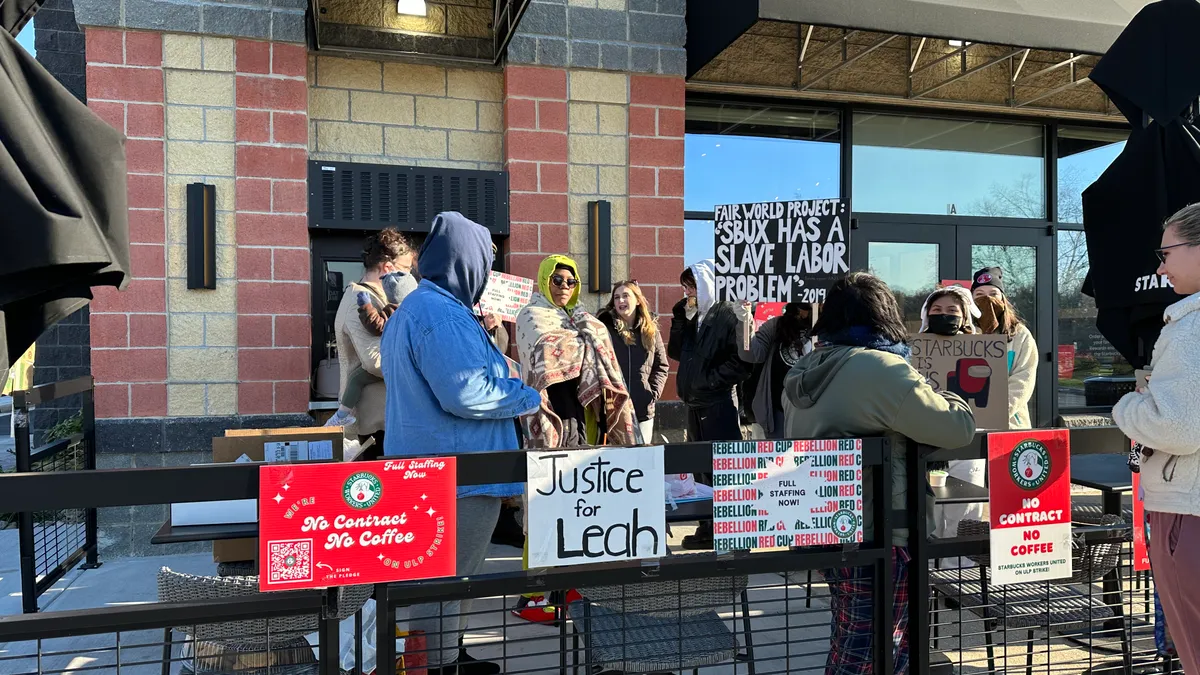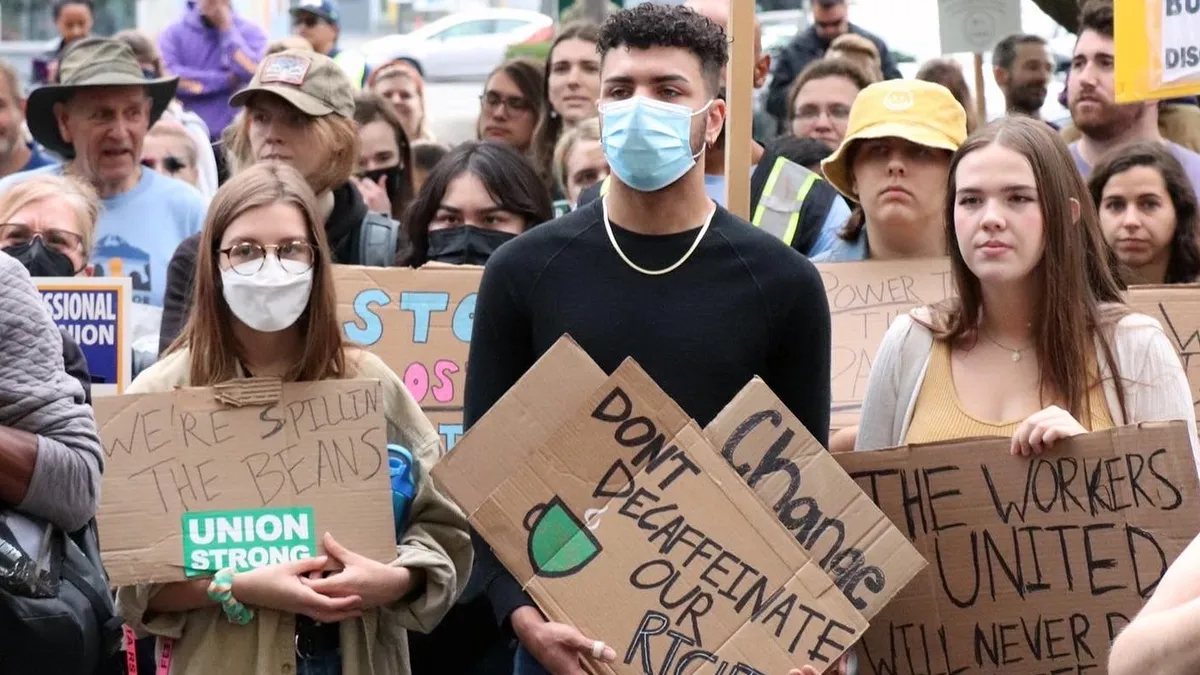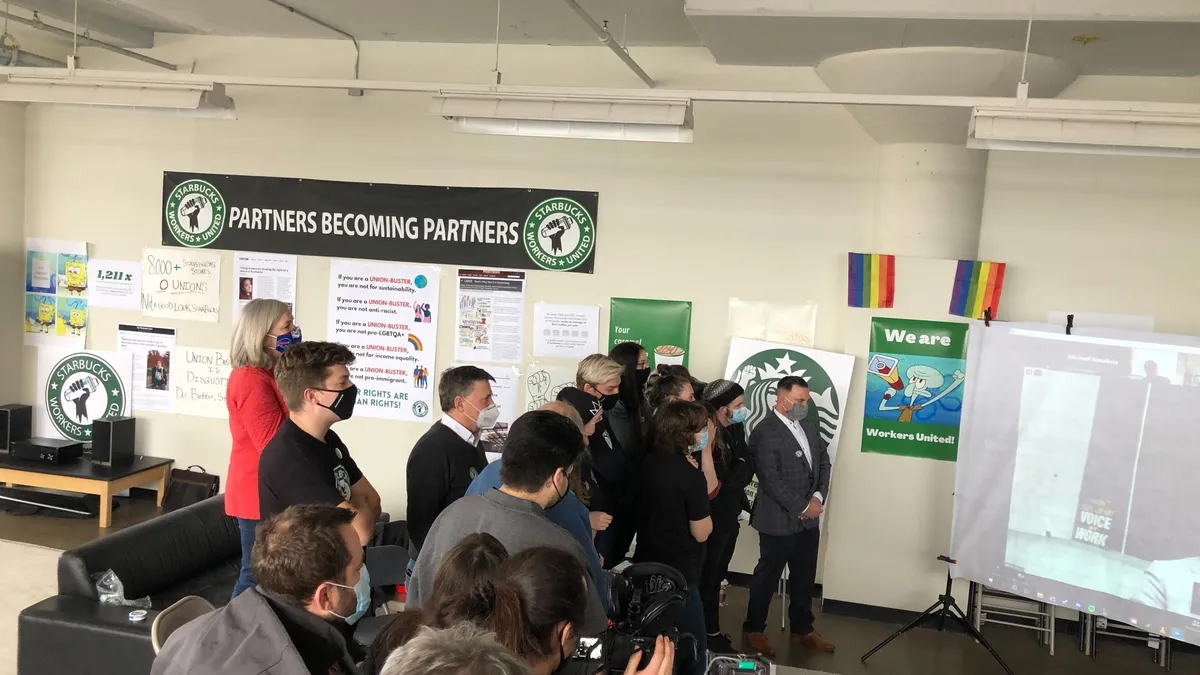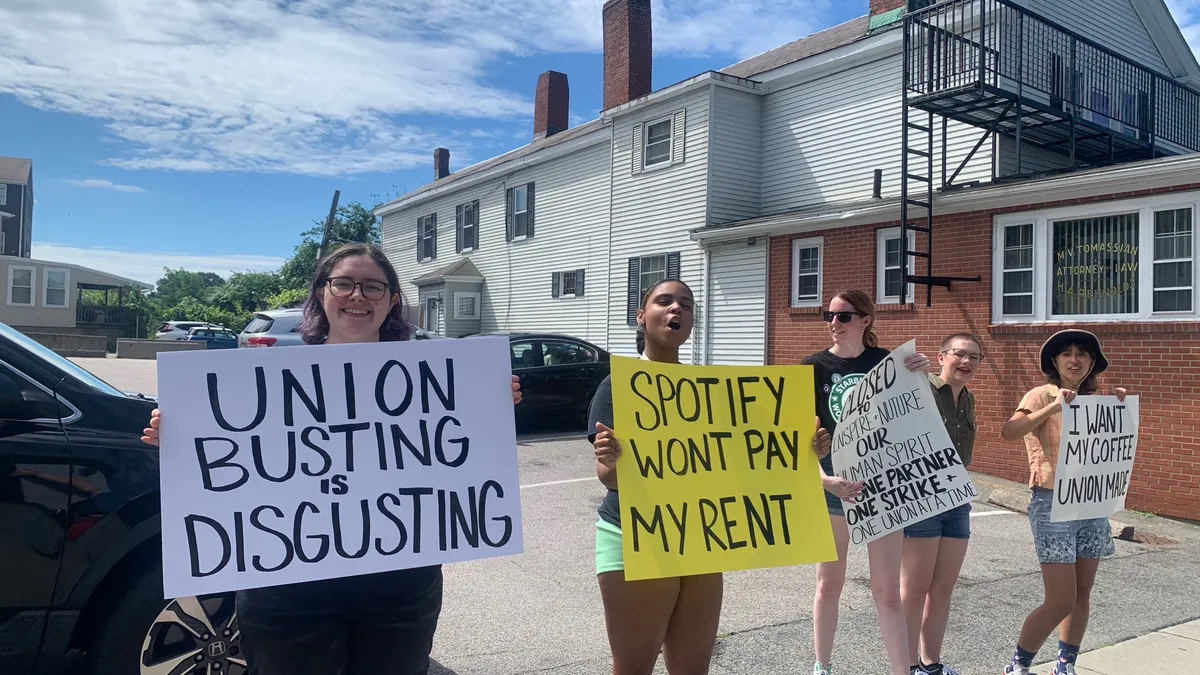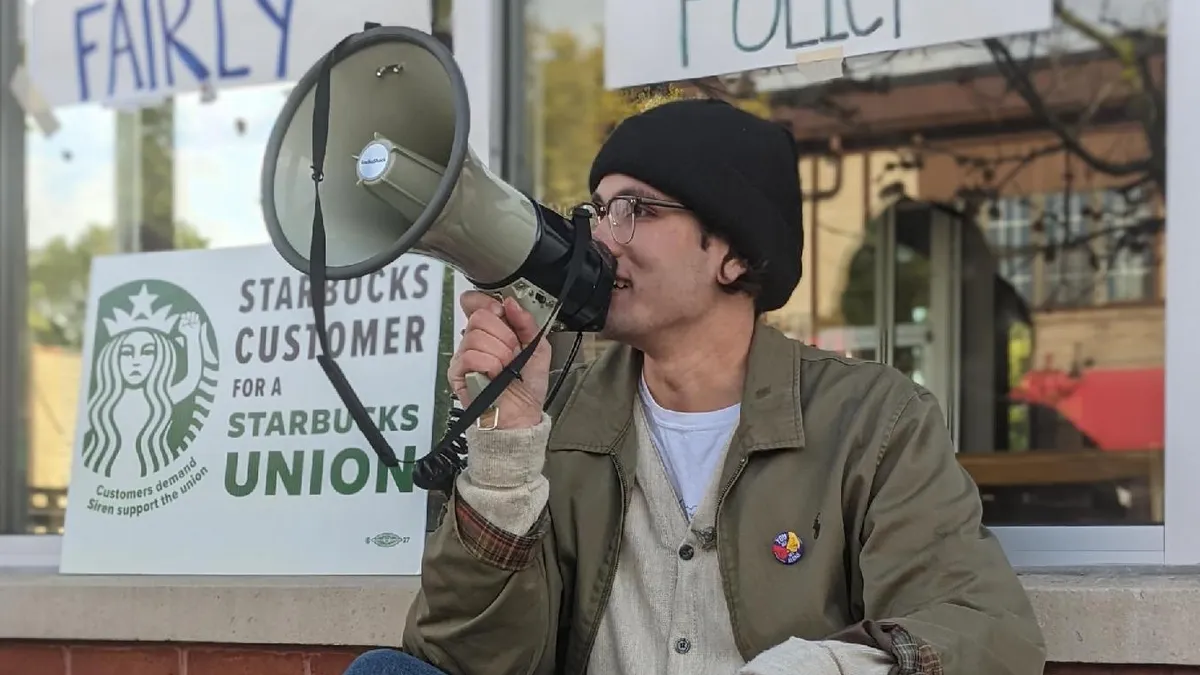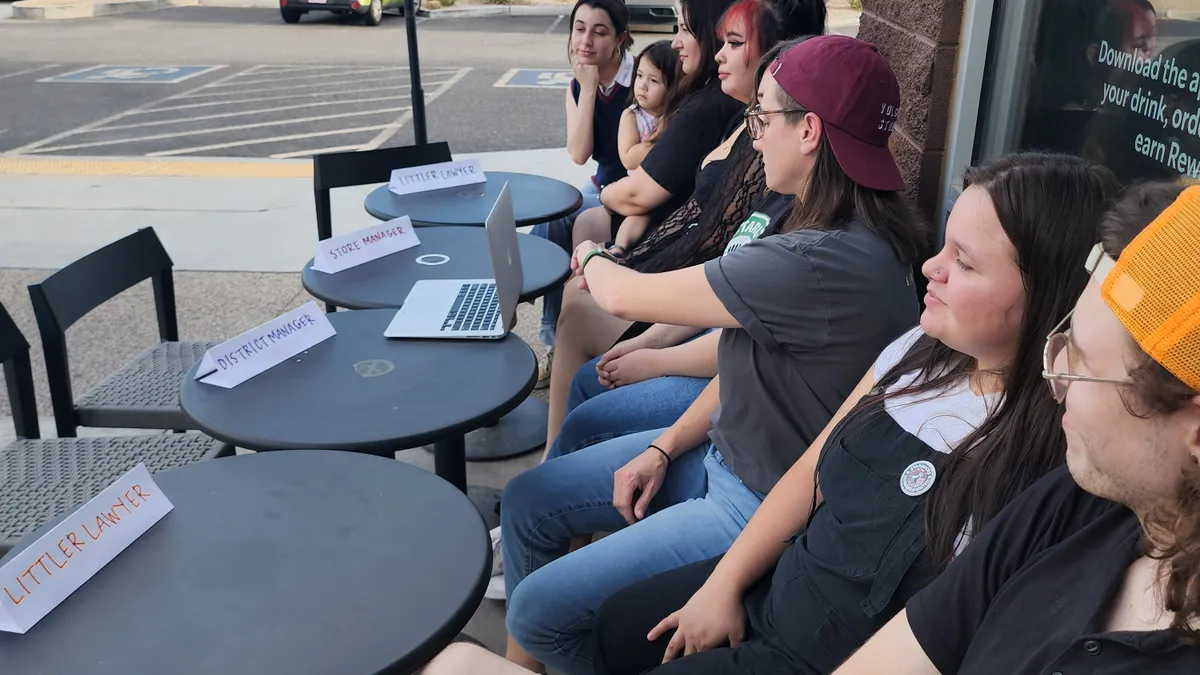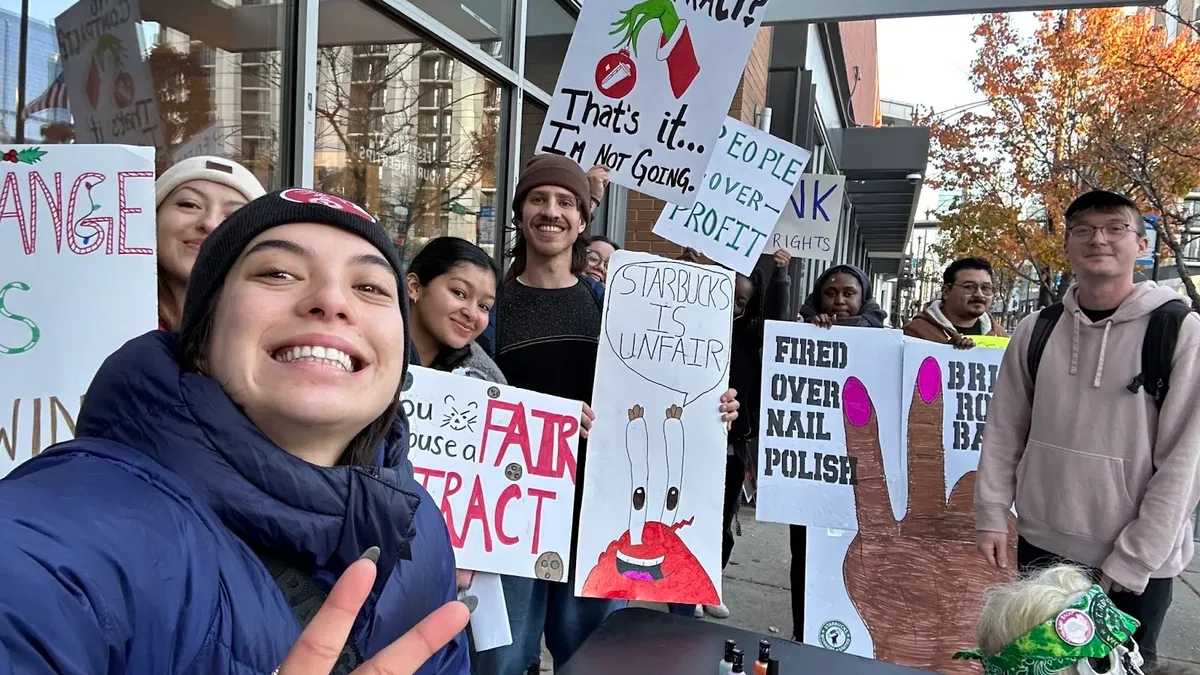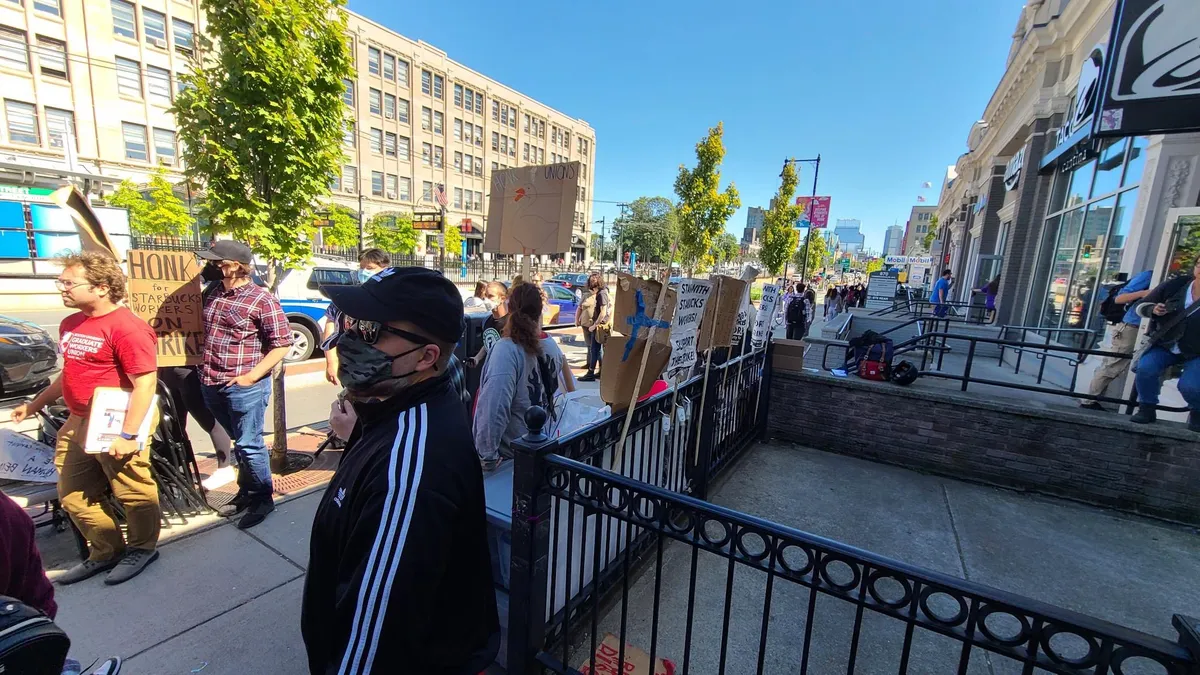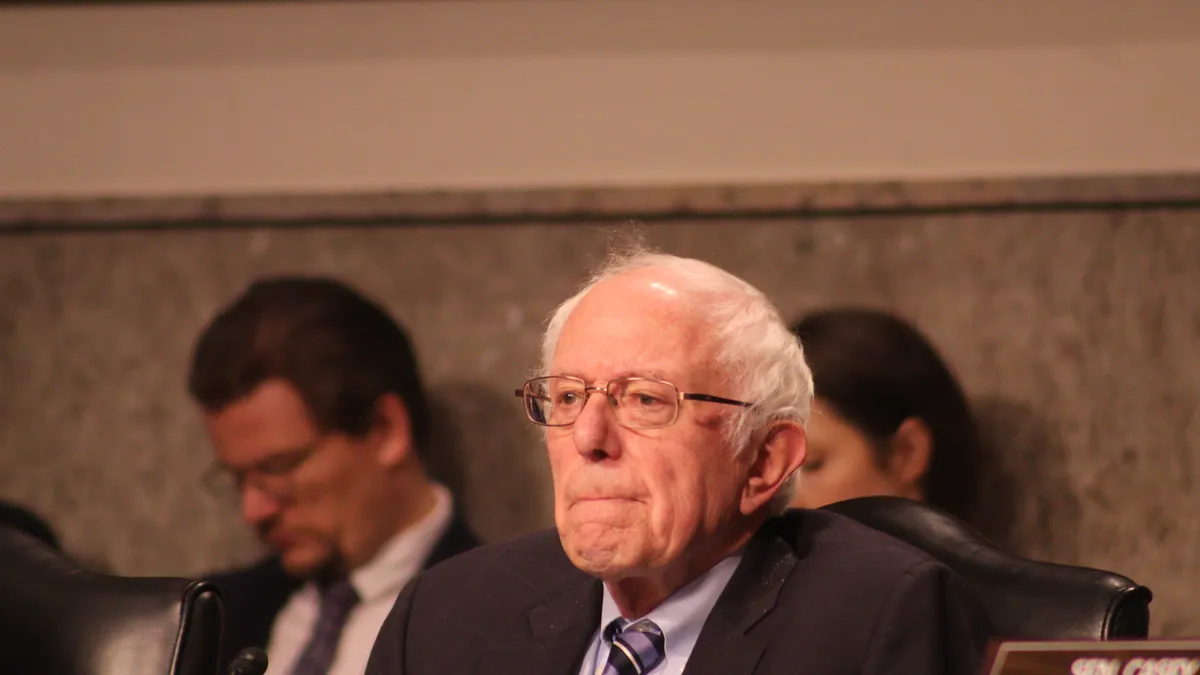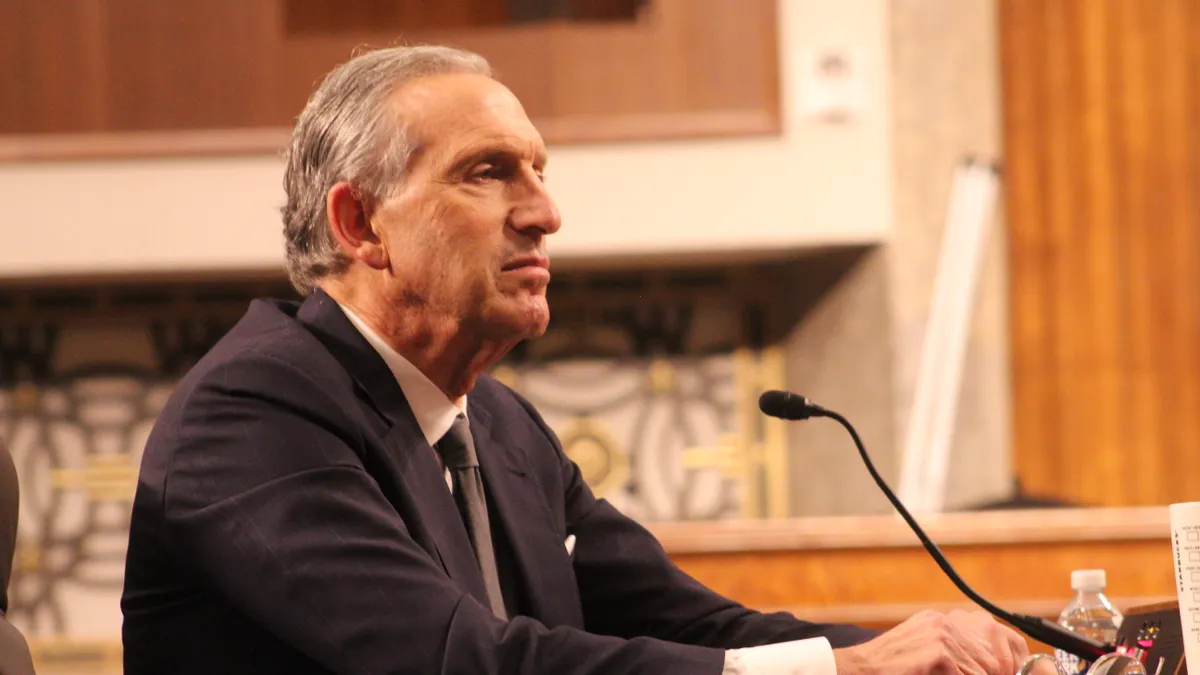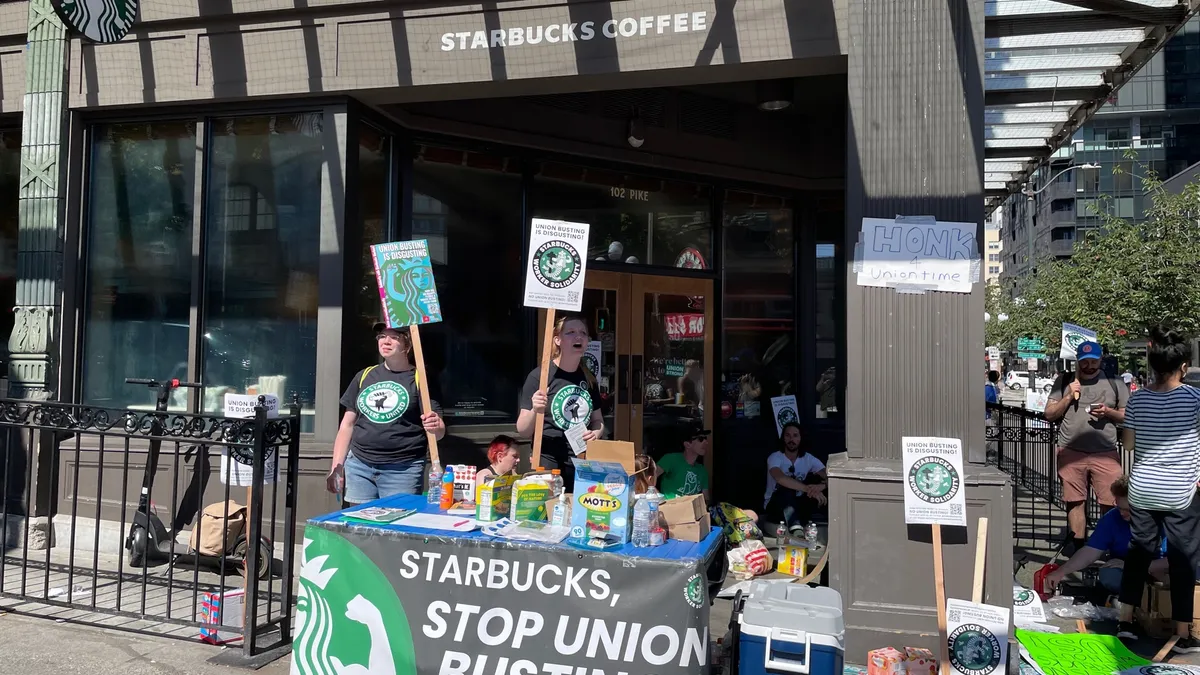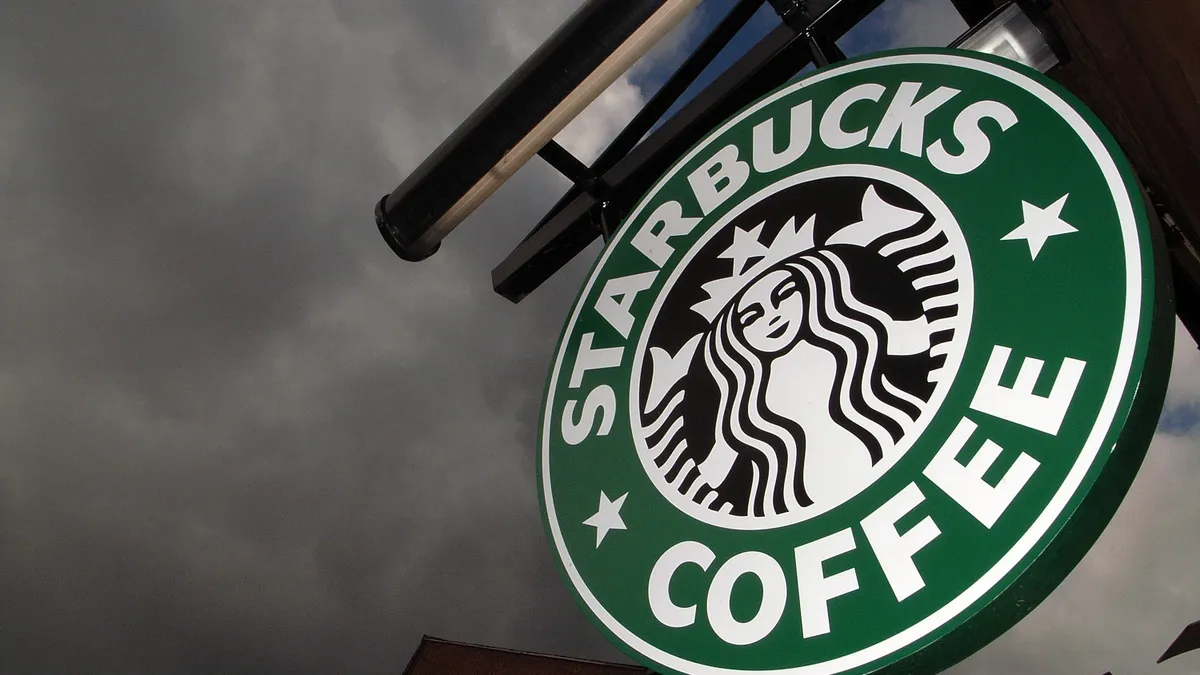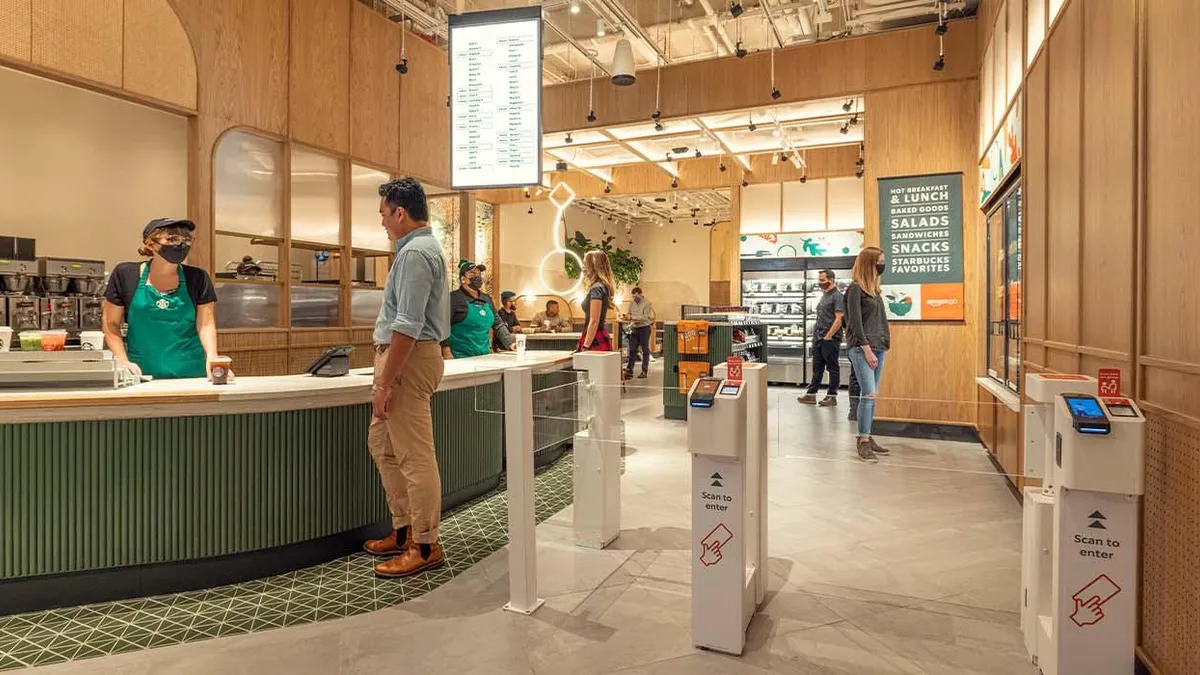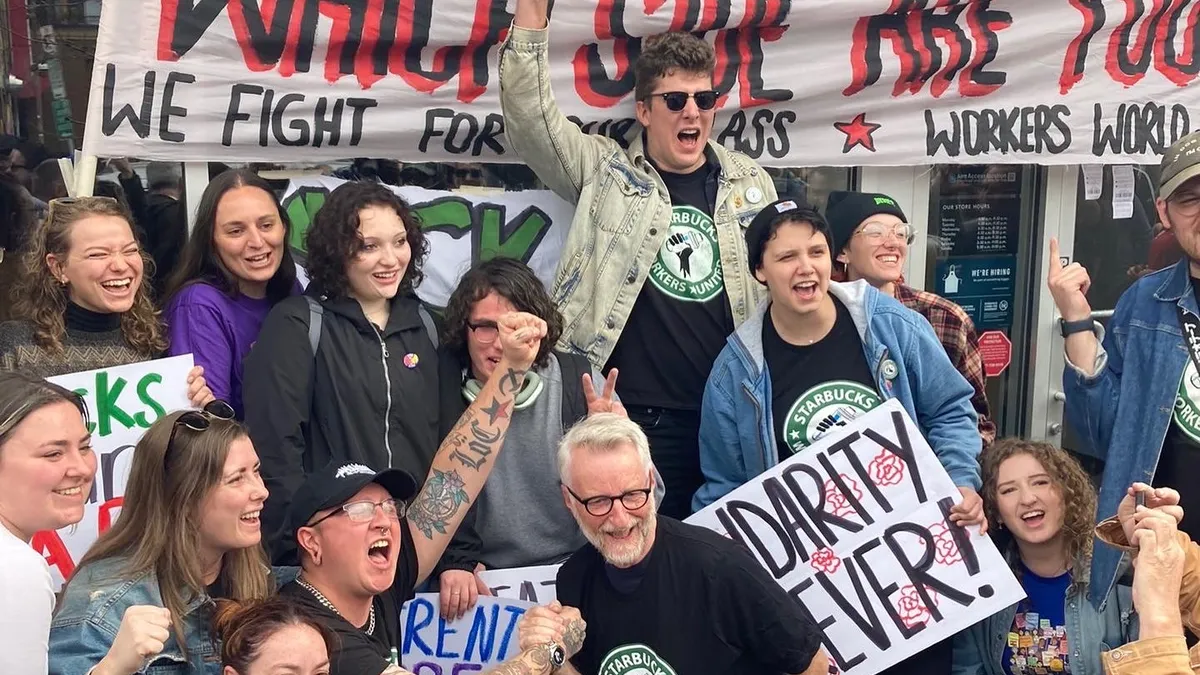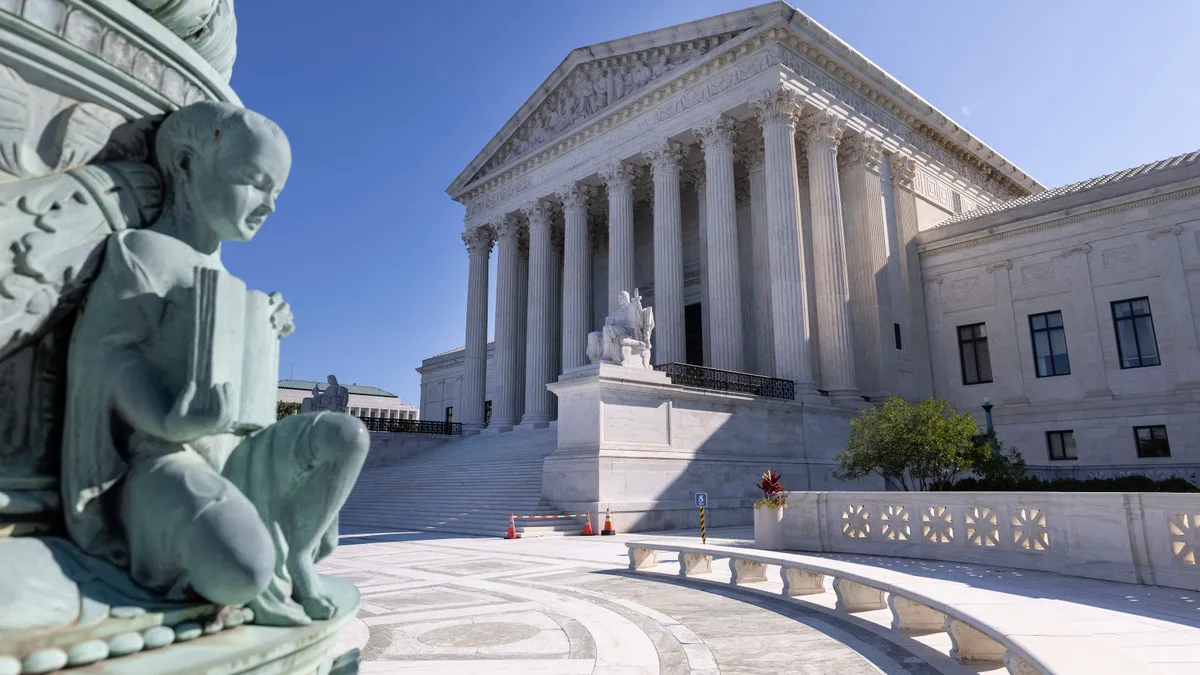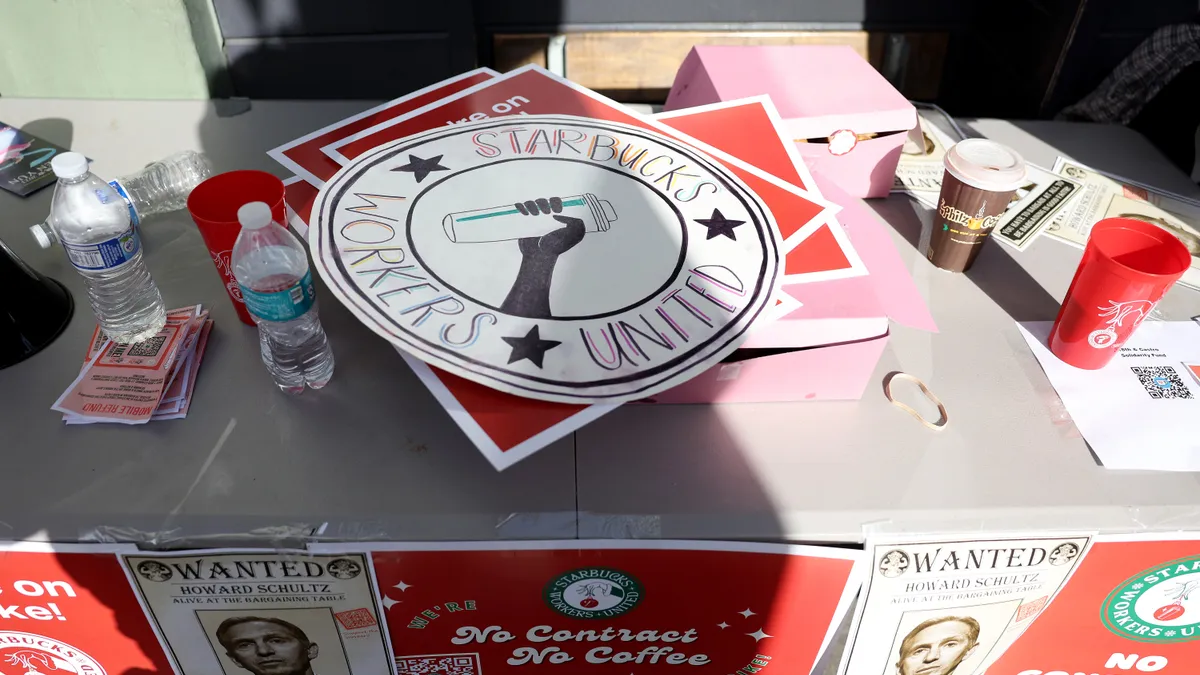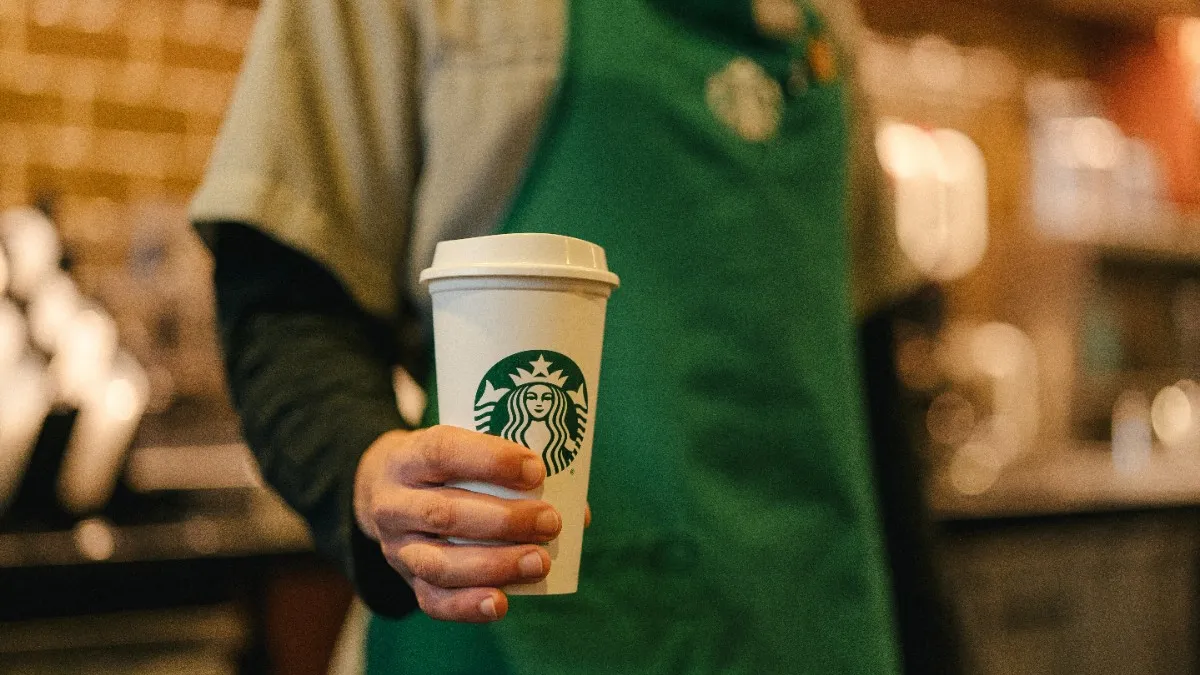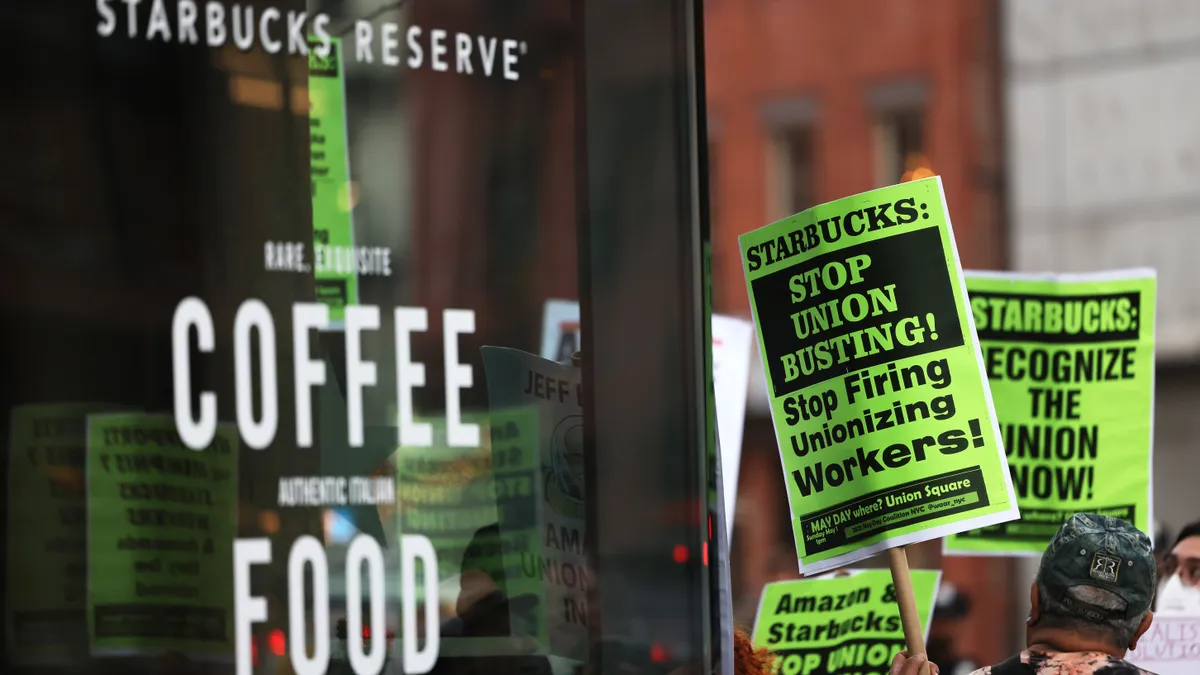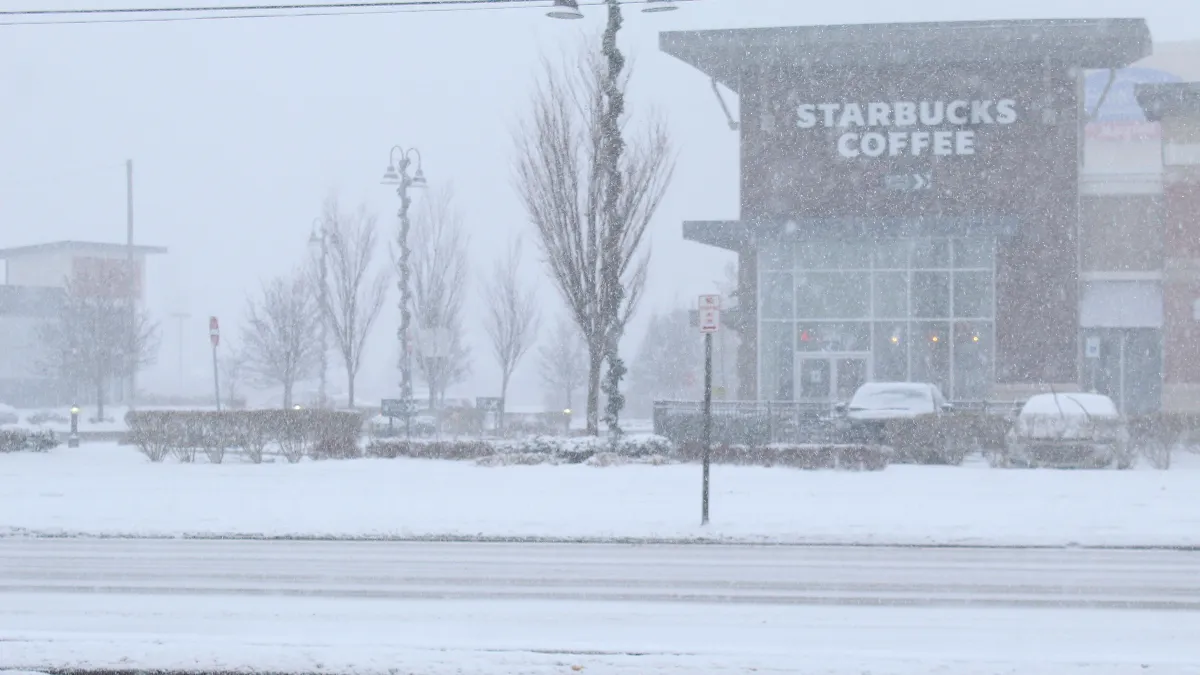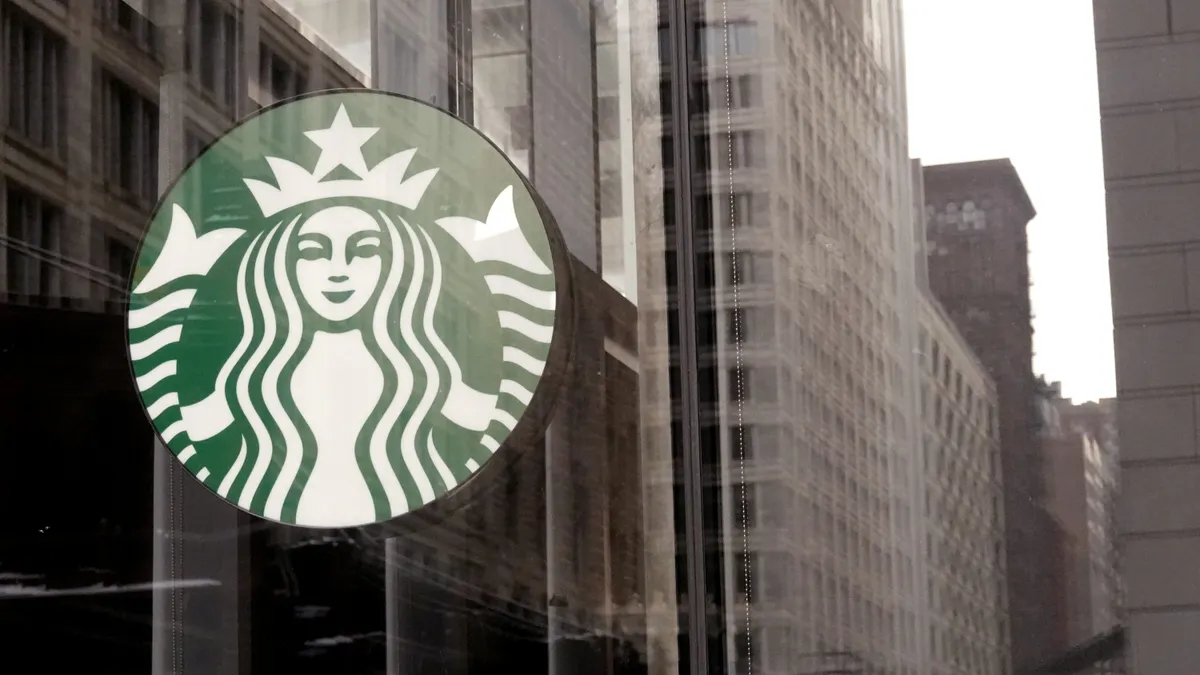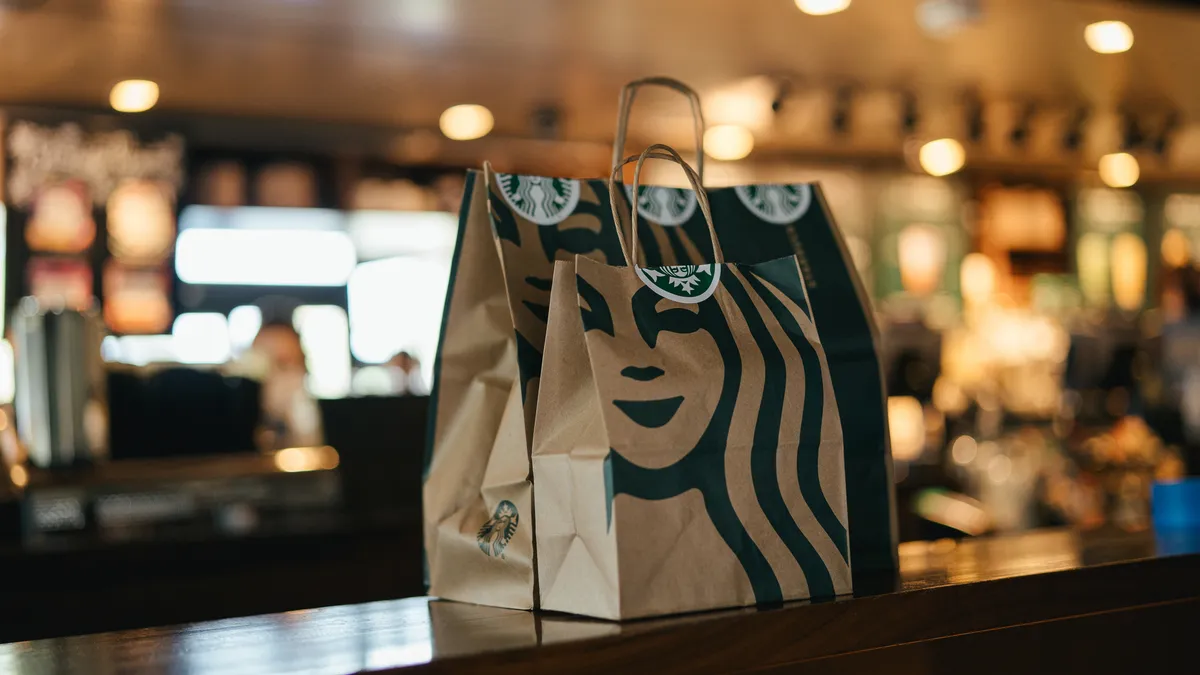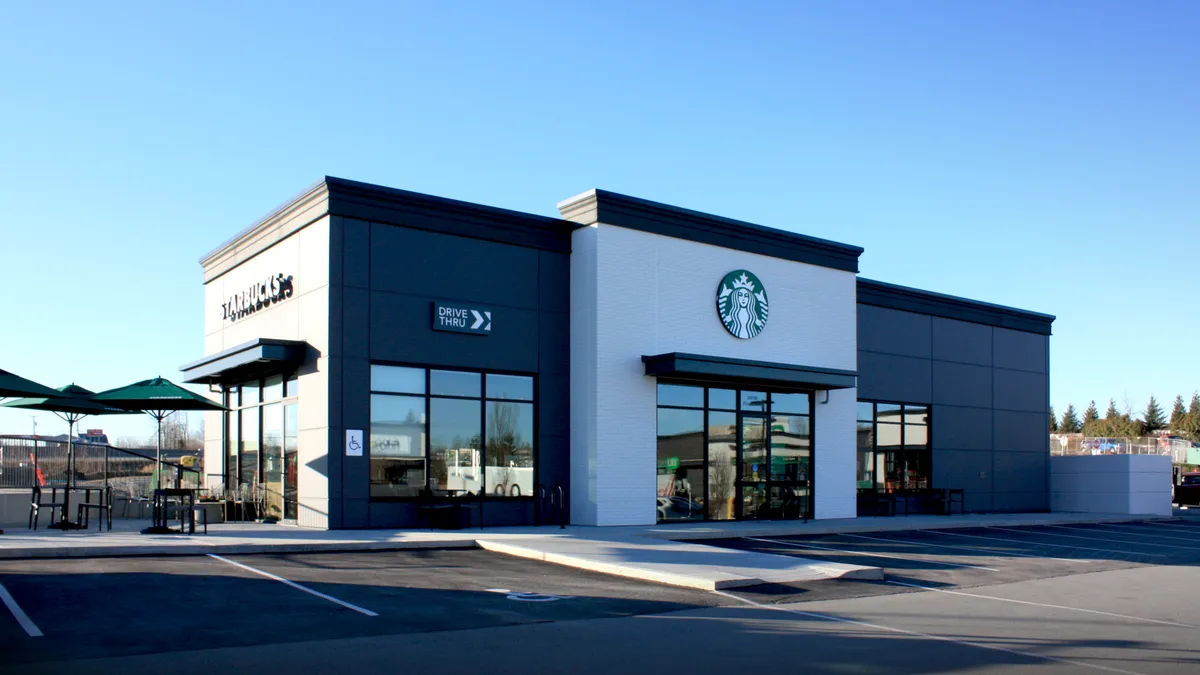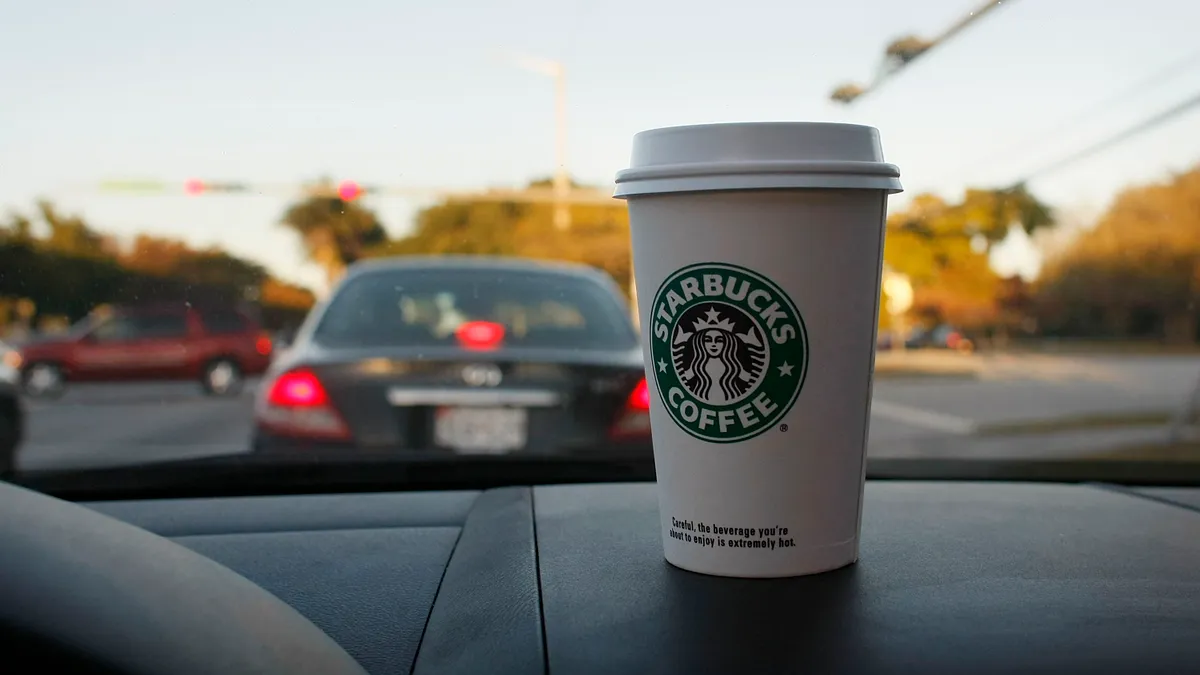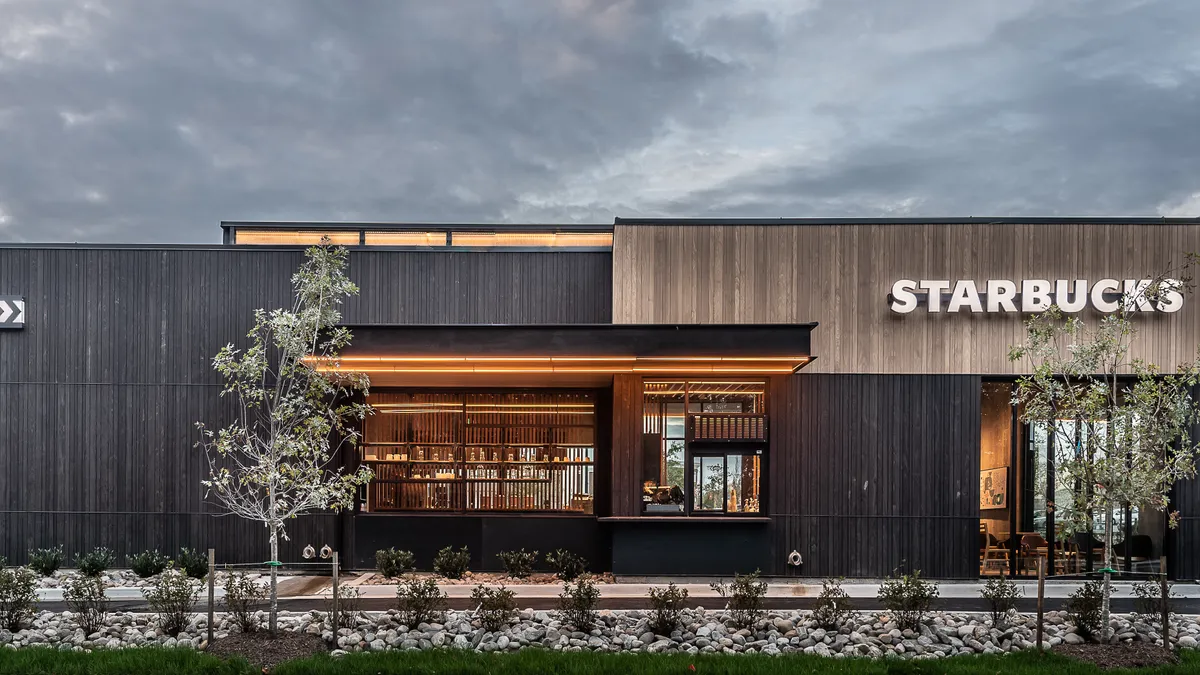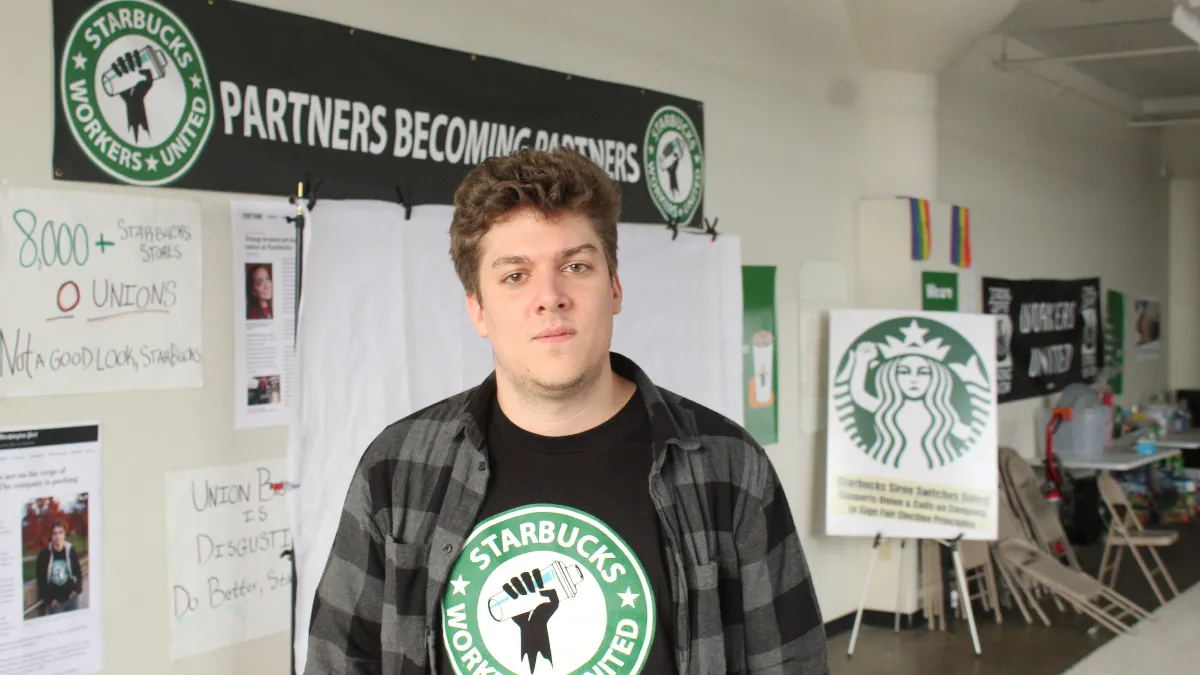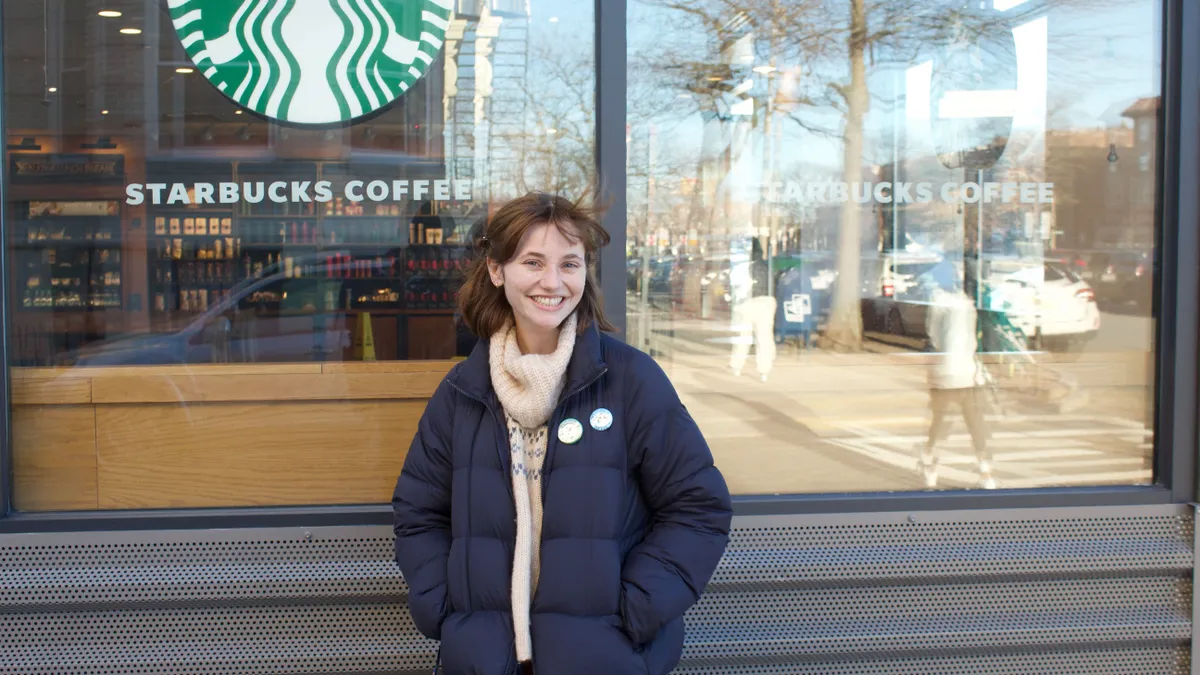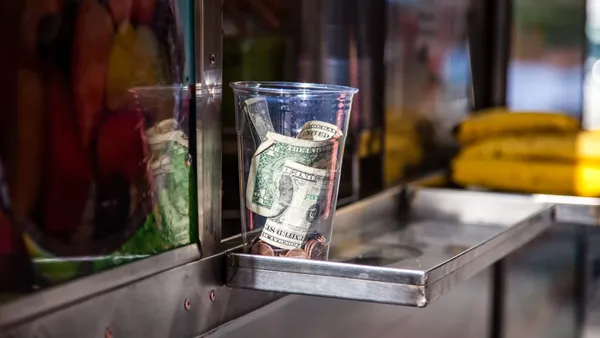Dive Brief:
- Starbucks Workers United has now announced public union campaigns in 60 stores in 19 states. On Monday, 14 Starbucks stores went public with their organizing. All of these stores are corporate owned, a Starbucks spokesperson said.
- Workers at Starbucks stores in New York, Arizona, Massachusetts, Washington, Colorado, Tennessee, Illinois, Oregon, Ohio, Florida, New Jersey, Maryland, Virginia, California, Georgia, Pennsylvania, Michigan, Kansas, and Missouri have announced public union drives, according to National Labor Relations Board records and union statements.
- Starbucks still opposes the union, according to a Starbucks spokesperson. The chain is slowing the voting process by requesting regional NLRB offices to refuse elections on a store-by-store basis, Ian Hayes, a lawyer representing Workers United in Buffalo, New York, said. Starbucks has argued the appropriate electoral unit is the regional market, rather than a single store.
Dive Insight:
The number of Starbucks stores filing for union elections is dwarfed by the company's network of cafes, which includes roughly 9,000 corporate-owned units in the U.S.
"If [the union] were to win NLRB elections in 1,000 Starbucks stores, in terms of the numbers that would be absolutely meaningless in terms of the crisis of private sector union members," John Logan, a professor of labor and employment studies at San Francisco State University, said.
Still, the union's momentum may have psychological significance for Starbucks employees and labor organizing in general, Logan said.
"In terms of... inspiring other workers... and creating a sense that something has fundamentally changed the labor world, even if... they only won 100 stores, I think that would probably be the biggest thing to happen to unions in this country in almost a century," Logan said. "I don't think that's exaggeration."
So far, three stores in Buffalo have had elections — the union won at two locations and lost at the third. Two more Buffalo-area stores withdrew their election petitions last year to speed up the election process at the first three stores to file, though Starbucks Workers United said the employees at these stores are still organizing. Four other stores, three in Buffalo, New York, and one in Mesa, Arizona, are currently voting. Fifty-one stores have gone public but have not begun voting.
To quell the movement, Littler Mendelson, the law firm representing Starbucks, has tried to enlarge the elections by including other stores in the same metro-areas that have not had a chance to organize, Logan said.
"Their strategy was really to create a bargaining unit that would make it as difficult as possible for the unions to win," Logan said. "[The bargaining unit] should be... like all of the stores in the Buffalo metropolitan region, or all of the stores in the Boston metropolitan region."
The combination of Starbucks' educated and often progressive workforce, spread across a multitude of small units, and fairly loose managerial supervision has widened the opportunity for Workers United, according to Logan.
"In a way, it's almost perfect for the union. You do want a lot of campaigns going on at once because that makes it far more difficult for Starbucks to fight them," Logan said.
Facing campaigns in 19 states will make it difficult for Starbucks to deploy the resources workers said it used in Buffalo before the elections there. Corporate deployed scores of support managers to surveil shop floors and company executives like Rossann Williams, president of Starbucks North America, made frequent visits, workers report.
Joseph Thompson, a shift supervisor at a Santa Cruz, California, Starbucks that filed for an election on Jan. 21, said their store has been plagued with safety issues and high turnover, and that Starbucks has left workers in Santa Cruz feeling unsupported.
"Upper management doesn't care about us at all, you know, we're just a number," Thompson said. "We have a turnover rate of 140%."
Thompson said Santa Cruz Starbucks workers are forming a union because they care about their jobs, their store and their coworkers.
"There's been so many different issues at the store, but partners are dedicated to making sure it can continue in a great manner. And the only way we can see that happening is through a union," Thompson said.



